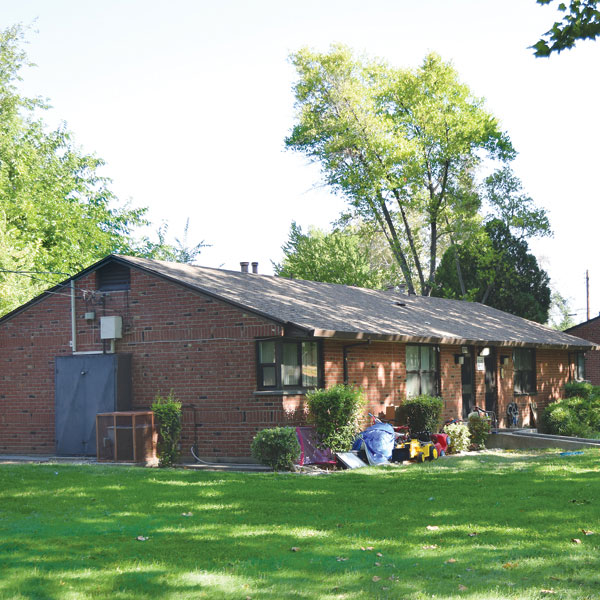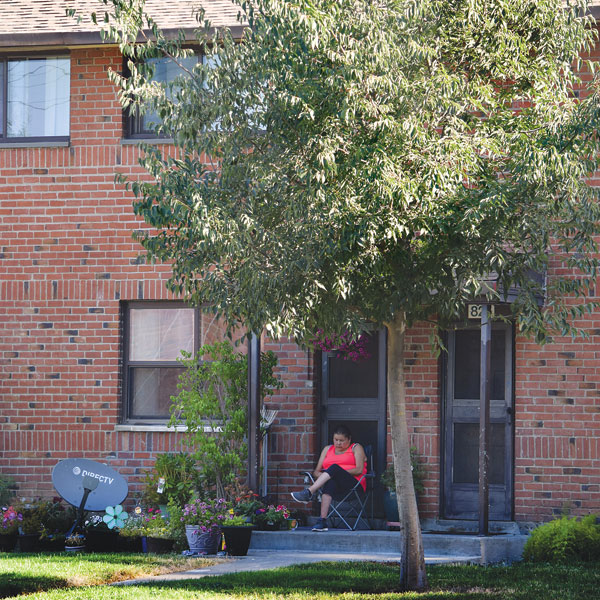It’s not often that a Sacramento redevelopment proposal pushes as many hot-button issues as the city’s West Broadway Specific Plan.
As it moves through the approval process, the long-range planning document has ignited passions about scarce affordable housing, the possible demolition of two public housing projects, historic preservation, isolating traffic patterns, gentrification, civil rights, Black Lives Matter and the memory of a Sacramento icon whose legal skills and advocacy improved the lives of African Americans here and around the nation.
The plan is focused on improving traffic flow and housing options in a 244-acre slice bounded by the Sacramento River on the west, Broadway on the north, Muir Way and Fifth Street on the east, and Fourth Avenue and Merkley Way on the south.

This largely industrial area has been overlooked, but some of the property is listed on state and federal registers of historic places. And success at the pioneering Mill at Broadway housing project has created new excitement about West Broadway’s potential.
The issue gets messy, however, because plans call for realigning the street grid. Realignment would require demolition of much of the Alder Grove housing project at Fifth and Broadway. Opened in 1942, Alder Grove is Sacramento’s oldest public housing complex.
Also referred to as New Helvetia, the community is where the late Nathaniel Colley, Sacramento’s first practicing Black lawyer, went to court to end the quota that allowed just 16 of 61 apartments to be occupied by African Americans.
Colley was humble and self-effacing, but a star in court. Through his intellect, character and fierce advocacy for civil rights, Colley—74 when he died of brain cancer in 1992—counted among his good friends President John F. Kennedy and Anthony Kennedy, who spent almost 30 years as the swing vote on the U.S. Supreme Court.
Although they had political differences, Colley and Justice Kennedy became friends when both taught at McGeorge School of Law.
In a “Dear Nat” letter found in Colley’s collection of historical documents, Justice Kennedy told Colley: “You have taught generations of attorneys and judges by an unparalleled example of decency, dedication, and passionate advocacy. You still teach that the law must respond to pleas for compassion in order to vindicate our own humanity.”

After Colley’s legal challenge ended the Alder Grove quota, he won a landmark Supreme Court ruling that said an entity getting federal aid could not discriminate in housing policy. That ruling paved the way to abolish race-restricted housing policies in much of the country. A few years ago, when another plan called for Alder Grove to be demolished, a local group of Colley friends, relatives and admirers formed the Colley Civil Rights Coalition to educate people about his legacy and save the low-income apartments.
This time around, the coalition hired a lawyer, a local public relations firm owned by former KCRA anchor Kellie DeMarco and an urban planner who drafted a thoughtful alternative proposal that would preserve much of Alder Grove. That plan includes a modest but welcome history center where Colley’s impressive legacy could be showcased. This is a man whose lofty record of accomplishment deserves broader recognition.
Politically savvy, the coalition sent a letter to the city’s Planning and Design Commission in July that focused on the lousy timing and irony of the city even talking about possible demolition of Alder Grove, where its mostly minority residents would be uprooted. It’s a safe bet that if Colley were alive, he’d find a way to step in and protect the people living there.
“In recent months, the exposure and correction of horrific systemic racism have dominated our country’s national public discourse,” the letter from Susan Brandt-Hawley, a lawyer from Glen Ellen, says. “Goals of social justice are finally moving forward. Surely the City should develop the Specific Plan through the lens and in the context of the Black Lives Matter movement and preservation of Sacramento’s Black history.”
A release from DeMarco made the point even more forcefully.
“This neighborhood is a historic visual reminder of the importance of Nathaniel Colley’s contributions to the civil rights and social justice issues of his day,” the release says, adding:
“Destroying a nationally recognized site of civil rights history to create a street grid aimed at alleviating future traffic congestion caused by racially insensitive urban planning only further retrenches race relations in the city.”
The Sacramento Housing and Redevelopment Agency, which owns Alder Grove and the nearby Marina Vista apartments, says it will renovate and not remove the sites. But the Colley Coalition is not convinced. It believes street realignment would require demolition.
If not for the COVID-19 pandemic that has forced most public meetings to go virtual, the West Broadway plan would surely bring Alder Grove residents and affordable housing advocates to City Hall in protest.
So far, it’s been the Colley Civil Rights Coalition that has been most vocal in opposing the plan while pushing alternatives. Like its namesake, the Colley Coalition is doing a good job standing up for people who need a champion.
Gary Delsohn can be reached at gdelsohn@gmail.com. Follow us on Facebook, Twitter and Instagram: @insidesacramento.















